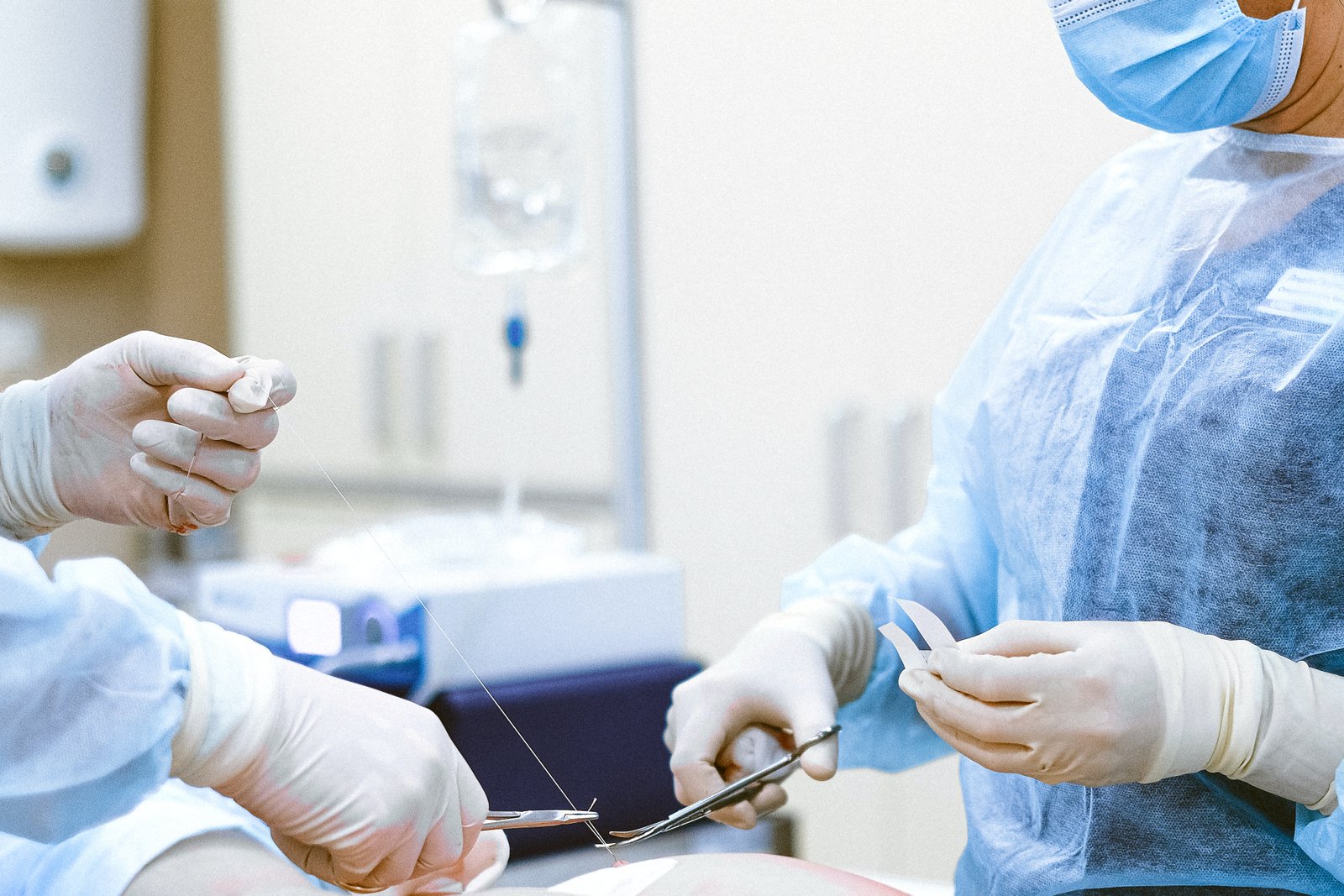
Are you or someone you know facing the daunting prospect of surgery for a dislocated shoulder? Don’t worry; you’re not alone. The road to recovery may seem intimidating, but understanding the ins and outs of this procedure is the first step toward a successful outcome. In this guide, we will demystify the process and provide you with all the essential information you need to navigate through surgery and onto the path of recovery.
From the initial diagnosis to the surgical techniques employed, we will take you through each stage, ensuring you understand what to expect. We aim to empower and support you during this challenging time, so you can make informed decisions and feel confident in your journey toward regaining full function and mobility in your shoulder. So, let’s dive in and embark on this road to recovery together!
Causes and Risk Factors of Shoulder Dislocation
Shoulder dislocation occurs when the humerus, the upper arm bone, pops out of the shoulder joint. This can happen due to various causes and risk factors. One common cause is trauma, such as a fall or a direct blow to the shoulder. Sports activities that involve repetitive overhead motions, like throwing or swimming, can also increase the risk of dislocation. Additionally, certain individuals may be more prone to shoulder dislocation due to underlying conditions like loose ligaments or a history of previous dislocations. Understanding these causes and risk factors is important to prevent better and manage shoulder dislocation.
Symptoms and Diagnosis of Shoulder Dislocation
Recognizing the symptoms of a dislocated shoulder is crucial for prompt diagnosis and treatment. The primary symptom is intense pain, often accompanied by swelling and bruising around the shoulder joint. The affected arm may appear deformed or out of place, and there may be a limited range of motion. It is important to seek medical attention if you suspect a dislocated shoulder, as a healthcare professional can perform a thorough physical examination and order imaging tests, such as X-rays or MRI scans, to confirm the diagnosis. Understanding the symptoms and the diagnostic process will help you navigate the next steps toward recovery.
Different Types of Shoulder Dislocation
Shoulder dislocations can occur in different ways, resulting in various types. The most common type is an anterior dislocation, where the humerus is forced forward out of the shoulder joint. This is often caused by a fall onto an outstretched arm. Posterior dislocations, on the other hand, involve the humerus being pushed backward. These dislocations can occur due to a strong force applied to the front of the shoulder or a violent muscle contraction. There are also less common types, such as inferior and luxation erect dislocations. Understanding the different types of shoulder dislocations is important, as it can influence the surgical approach and treatment plan
Surgical Options for Treating Shoulder Dislocation
When conservative treatments, such as immobilization and physical therapy, fail to provide relief or stability, surgery may be recommended for treating shoulder dislocation. Several surgical options are available, depending on the specific circumstances of the dislocation and the patient’s needs. One common surgical procedure is called arthroscopic shoulder stabilization, which involves making small incisions and using a tiny camera and specialized instruments to repair and tighten the torn ligaments and tissues surrounding the shoulder joint.
Another option is open shoulder surgery, where a larger incision is made to access and repair the damaged structures directly. Surgeons may also opt for a procedure called Bankart repair, which focuses on reattaching the torn labrum to the shoulder socket. Understanding these surgical options will help you have an informed discussion with your healthcare provider and make the best decision for your shoulder.
Preparing for Shoulder Surgery
Preparing for shoulder surgery involves several important steps to ensure a smooth procedure and a successful outcome. Your healthcare team will provide specific instructions tailored to your individual case, but there are general guidelines to follow. These may include stopping certain medications that can increase bleeding risks, fasting before the surgery, and arranging transportation for the procedure day. It is important to communicate openly with your healthcare provider, disclose any allergies or medical conditions, and address any concerns you may have. Being well-prepared physically and mentally will contribute to a positive surgical experience.
The Procedure Of Surgery For A Dislocated Shoulder
During the surgical procedure for shoulder dislocation, you will be placed under general anesthesia, ensuring that you are comfortable and pain-free throughout the operation. The surgeon will make the necessary incisions to access the shoulder joint and perform the required repairs. This may involve reattaching torn ligaments, repairing or removing damaged cartilage or bone, or stabilizing the joint using various techniques. The specific steps will depend on the type and severity of the dislocation and the chosen surgical approach. Skilled surgeons carefully plan and execute the surgical procedure, ensuring optimal outcomes and a successful recovery.
Recovery After Surgery For A Dislocated Shoulder
Recovery and rehabilitation after shoulder surgery are crucial in restoring function and mobility to the shoulder joint. Following the surgery, you will be monitored closely in the recovery area until you wake up from the anesthesia. Pain management strategies will be in place to ensure your comfort during the initial stages of recovery. Physical therapy and rehabilitation will begin soon after the surgery, gradually increasing the shoulder’s range of motion, strength, and stability. The duration and intensity of the rehabilitation program will vary depending on the surgical procedure and individual factors. It is important to follow the guidance of your healthcare team and actively participate in your recovery to achieve the best possible outcome.
Potential Complications and Risks of Shoulder Surgery
As with any surgical procedure, shoulder surgery carries certain risks and potential complications. These can include infection, bleeding, blood clots, nerve injury, and stiffness. It is important to discuss these risks with your healthcare provider before surgery and address any concerns you may have. Following the post-operative instructions and attending all follow-up appointments will help minimize the risks and ensure a smooth recovery. By being aware of the potential complications and risks, you can feel confident in your decision to undergo surgery and take the necessary precautions for a successful outcome.
Alternatives of Surgery For A Dislocated Shoulder
While surgery may be the recommended treatment for some individuals with shoulder dislocation, it is not the only option. Non-surgical alternatives can be considered, especially for less severe cases or those who prefer a conservative approach. These alternatives may include immobilization using a sling, physical therapy to strengthen the surrounding muscles, and lifestyle modifications to avoid activities that can aggravate the shoulder joint. Discussing these alternatives with your healthcare provider to determine the best course of action for your situation is important. Non-surgical options can be effective in some cases, providing relief and stability without the need for surgery
Frequently Asked Questions
Who needs shoulder dislocation surgery?
Not every shoulder dislocation requires surgery. Those who frequently experience shoulder dislocations, have a high risk of future dislocations, or who have severe damage in the shoulder from a dislocation may be candidates for surgery.
What types of shoulder dislocation surgeries are there?
There are several types of surgeries for shoulder dislocations, including arthroscopy (a minimally invasive procedure using small instruments and a camera), open surgery, and the Bankart repair procedure which specifically addresses the ligament in the front of the shoulder that often gets damaged during dislocation.
What is the success rate of shoulder dislocation surgery?
While success rates can vary depending on the specific procedure and individual patient factors, generally, shoulder dislocation surgery has a high success rate. Many patients can return to their normal activities after recovery.
How long is the recovery after shoulder dislocation surgery?
Typically, the recovery period ranges from a few weeks to several months. Physical therapy is usually recommended as part of the recovery process to restore strength and flexibility in the shoulder.
What are the risks of shoulder dislocation surgery?
As with any surgery, there are risks, including infection, bleeding, nerve damage, and the possibility of ongoing shoulder instability. It's also possible for the shoulder to become stiff after surgery.
Will I be able to return to sports or other physical activities after surgery?
Most patients are able to return to sports or physical activities after recovery, but it's critical to follow the guidelines provided by your doctor and physical therapist to avoid reinjury.
Will I need physical therapy after the surgery?
Yes, physical therapy is an important part of recovery after shoulder dislocation surgery. It helps to restore strength, flexibility, and range of motion to the shoulder.
What is the cost of shoulder dislocation surgery?
The cost can vary widely depending on the surgical procedure, location, and whether or not insurance is used. It's important to talk with your healthcare provider and insurance company about the expected costs.
Can shoulder dislocation surgery be done as an outpatient procedure?
Some shoulder dislocation surgeries can be performed on an outpatient basis, while others may require an overnight stay in the hospital. This depends on the specifics of the surgery and the patient's overall health.
How can I prepare for the surgery?
Before the surgery, you may need to undergo certain tests to ensure you are healthy enough for the procedure. Also, your doctor will provide specific instructions about eating, drinking, and medications before the surgery. You'll be asked to stop smoking, as it can interfere with the healing process.
Conclusion and Final Thoughts
Understanding the road to recovery after surgery for a dislocated shoulder is essential for a successful outcome. From the causes and risk factors to the surgical options and potential complications, being well-informed empowers you to make the best decisions for your shoulder health. Remember to consult with your healthcare provider, ask questions, and actively participate in your recovery. With the right support and guidance, you can navigate this challenging journey and regain full function and mobility in your shoulder. The road to recovery may have its ups and downs, but with determination and patience, you can reach your destination and achieve a strong and stable shoulder again.



